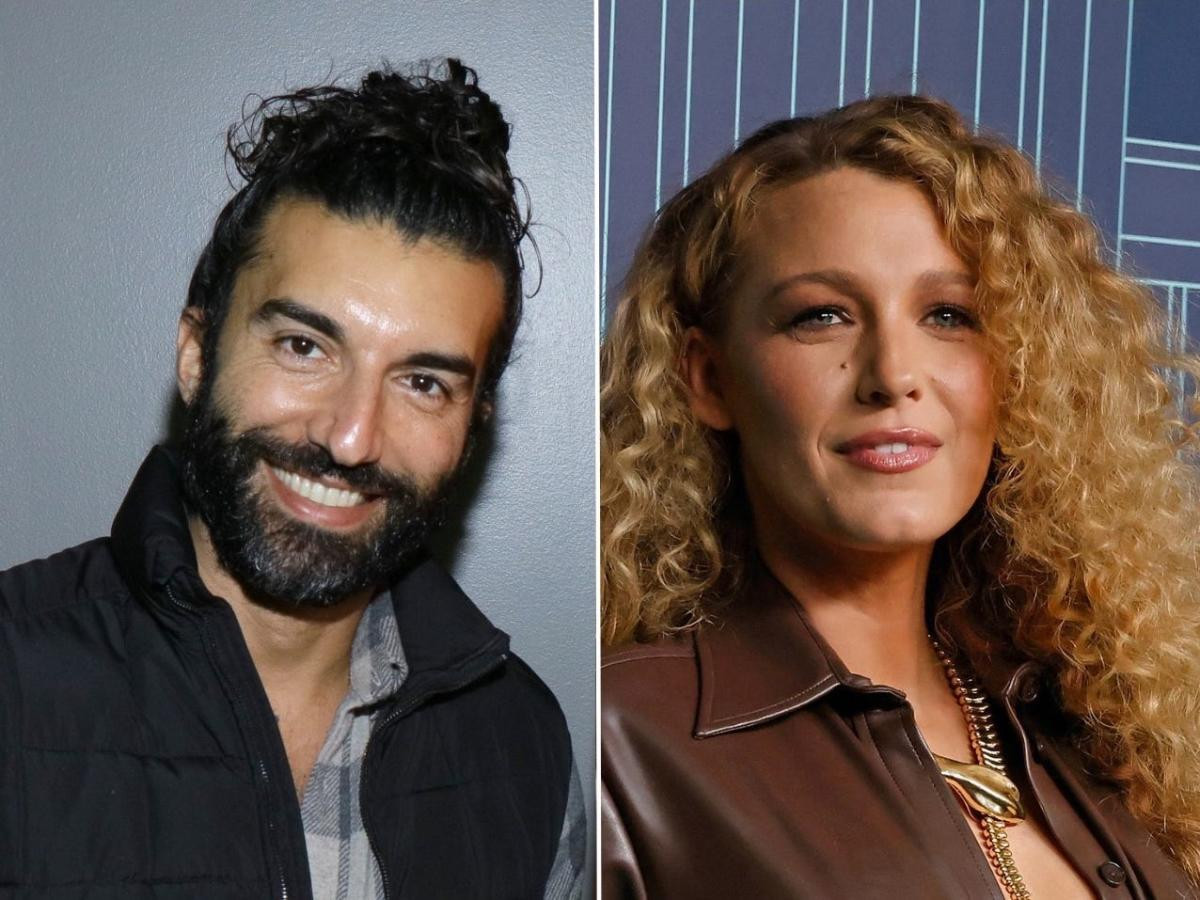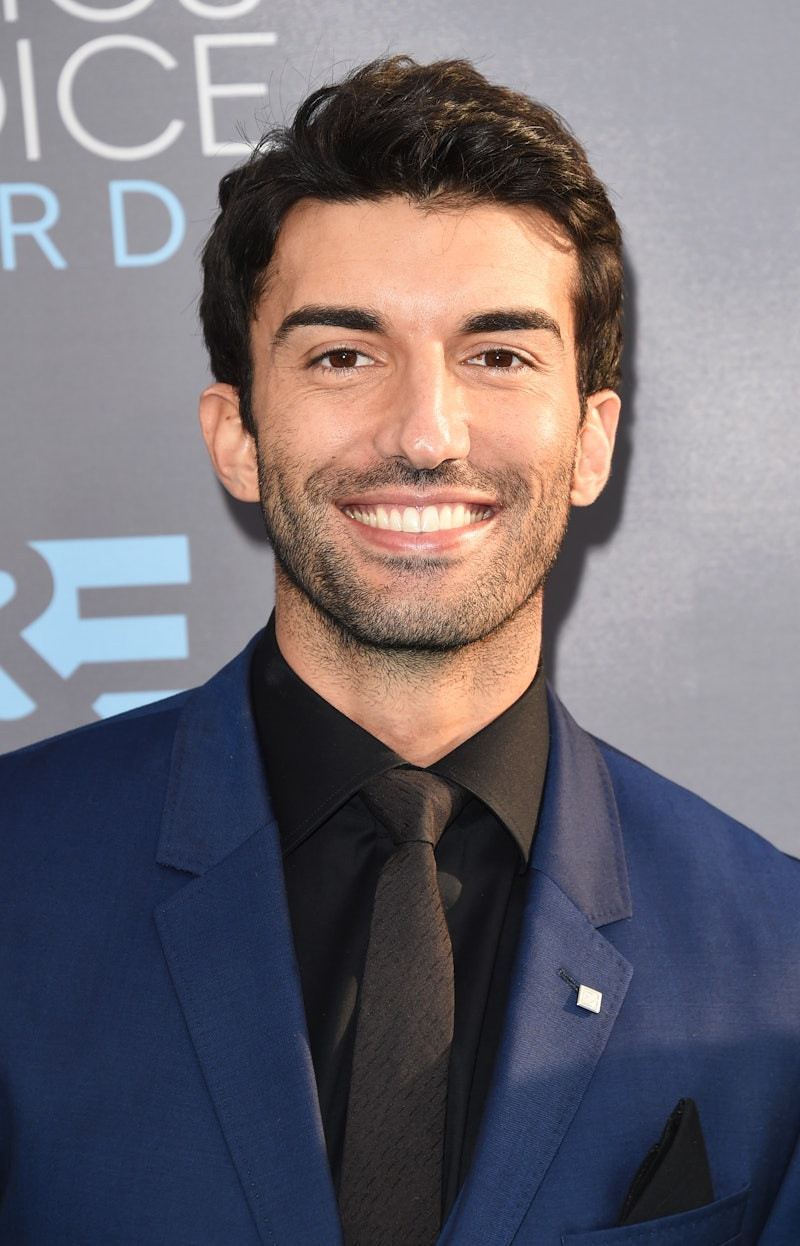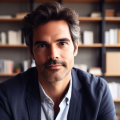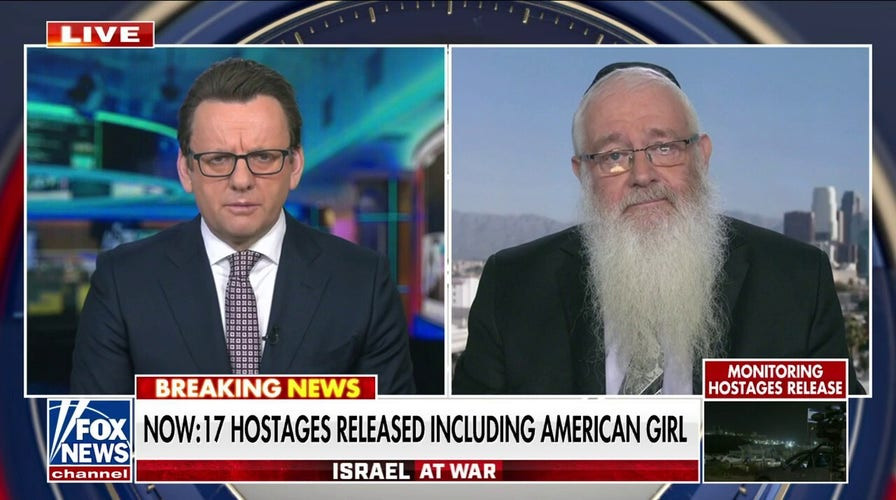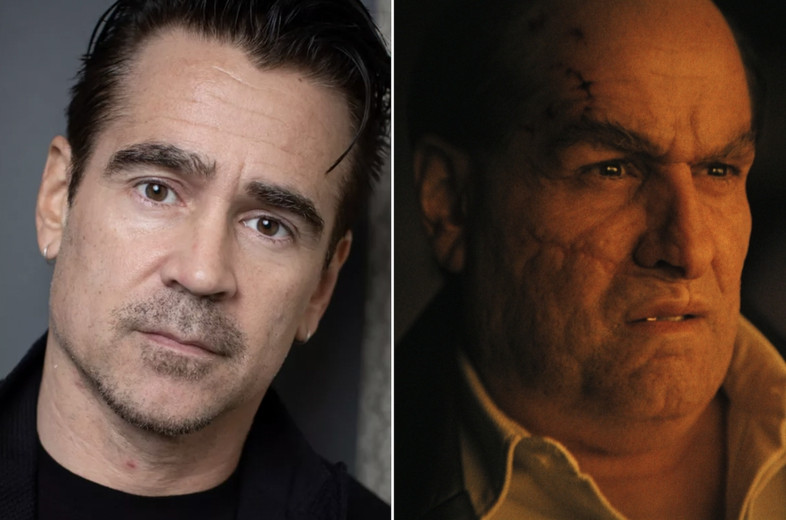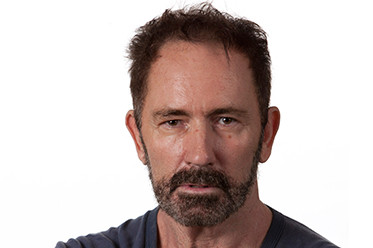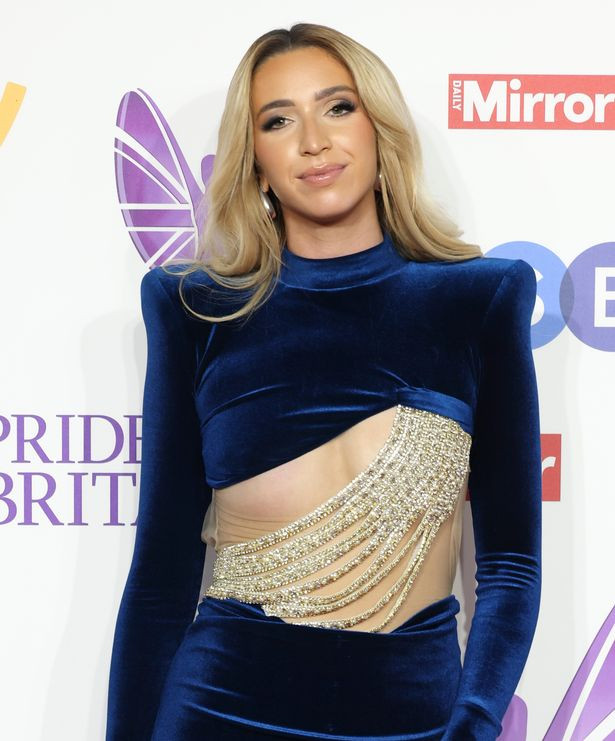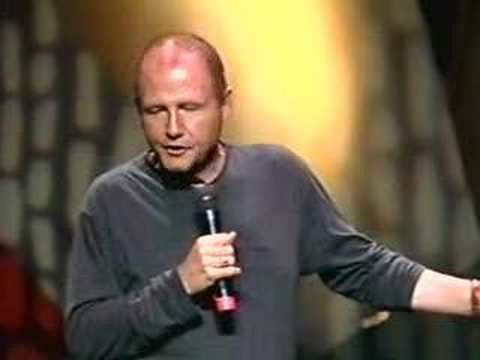Justin Baldoni is mid-bite into a frosting-smothered cinnamon roll, insisting everyone else in the room try some.
“See, and people think I don’t eat carbs!”
And he’s right; his buff, Hollywood-leading-man looks don’t suggest someone who would gleefully dive into carbs and sugar, let alone a combination of the two. There’s even a joke in his new movie, “It Ends With Us,” that his character, Ryle, must not indulge.
“Blake wrote that line,” Baldoni shares immediately, referring to co-star Blake Lively. He adds that it was Lively’s assistant who first introduced him to cinnamon rolls from The Hive in Hoboken, New Jersey, where the film was partially shot.
But their approach to carbs is hardly the only thing Ryle and Baldoni, who also directed the feature film, differ on starkly. The legions of fans who made Colleen Hoover’s book of the same title a mega hit know that Ryle’s initially charming and romantic allure only obscures his dark and troubled interior — which leads to a physically abusive relationship with wife Lily (Lively).
Where Ryle is abrasive and impulsive, Baldoni is contemplative and introspective, taking deep breaths and long pauses before answering questions. While Ryle’s eyes turn an eerie black in some of the movie’s more intense scenes, Baldoni’s gaze is warm and inviting, making conversation with each person behind the scenes of his photo shoot and interview.
How did one transform into the other?
“I did a lot of work to prepare for Ryle, months and months and months, before we ever shot anything,” Baldoni, an executive producer on the movie with Hoover and others, shares with TODAY.com. “Besides working with acting coaches, I kept a journal as Ryle, and I wrote down in first person as if it was like a therapy assignment.”
Part of the preparation also entailed sitting in court-mandated recovery groups for perpetrators in hopes of breaking down their psychology.
“I needed to understand him. I didn’t have to like him, but I had to understand why he did the things that he did, and where he was coming from,” Baldoni shares.
“My work was feeling his insecurity,” he continues, “because everything he does in the movie comes from a lack of something: It comes from a fear of being left behind, a fear of not being enough, a fear of nobody truly loving him, because he’s unlovable, because he doesn’t love himself, because of what he’s done, but he doesn’t know that yet. I would come home and I was just ... I’d be a complete mess.”
This level of vulnerability isn’t a surprise coming from Baldoni, who in addition to playing romantic lead Rafael Solano in the TV hit show “Jane the Virgin,” is best known for his off-screen work attempting to “undefine masculinity,” in his own words. His crusade to dismantle male emotional repression launched with a Ted Talk in 2017 and includes a book titled “Man Enough,” a podcast of the same name and a book for kids titled “Boys Will Be Human.”
As the film’s director, he had to shed his Ryle character quickly and step back into the role of leader, which he says wasn’t always an easy transition.
“I can feel (Ryle) living inside of me, but I’m, like, pushing that down so that I can make sure that everybody on set is OK, and I’ve never once raised my voice on set,” he says.
“I mean, there were moments where I just had to take a step back and shake it out or just cry, because he doesn’t allow himself to cry in the movie. So I have to let myself, as Justin, cry it out,” he continues. “I’d go in the corner and let it out and make sure nobody was looking at me, because I’m the filmmaker at the end of the day. I’ve been trying to get him out for a long time, and I think he’s finally out ... almost out.”
He clarifies that he never brought Ryle home to his wife of 11 years, Emily Baldoni, and kids Maiya, 9, and Maxwell, 6. But the “sadness” stuck with him.
Emily Baldoni, a fellow actor who has a cameo in the film along with their kids, stays close throughout the interview and gushes with pride at her husband’s accomplishment. “This guy does everything with so much heart and so much integrity, and he’s just wonderful at what he does. So I’m super proud,” she says. “Making movies is not easy.”
Baldoni calls his first time both starring in and directing a film an “extreme challenge.”
“Every movie is a miracle,” he says. “And then, of course, you’re navigating complex personalities and trying to get everybody on the same page with the same vision. And mistakes are always made, and then you figure out how to move past them.”
He describes his directing style as a constant collaboration, for better or worse.
“I’m a ‘best idea wins’ person, and I always have been, to a fault. Sometimes to a point where, at times, I think I’ve had people wonder if I know what I’m doing or if I have a point of view, because I’m so willing to have my vision changed. I don’t believe that inspiration or creativity comes through one person.”
This proved to be a balancing act to avoid having his voice drowned out entirely. “You don’t have to listen to everybody and that didn’t happen all the time, but there were just moments where I would get out of the way too much,” he says.
Other times, Baldoni was happy to step back, like when he asked the intimacy coordinator and stunt coordinator to take the lead in the sensitive scenes depicting domestic violence. He also deferred to input from domestic violence organization No More to make choices for the film.
He credits contributions by Lively, a producer on the movie, in particular as crucial to the film’s success.
“You can’t summarize Blake’s contribution in a sentence, because her energy and imprint is all over the movie and really, really made the film better, and from beginning to end. Ryan (Reynolds) was so generous ... he’s a creative genius, that guy. So, you know, his gift is levity, and her gift is levity.”
Would he work with the husband-and-wife duo again? “If they’d have me.”
Ahead of the movie’s release, Baldoni thinks back to the flurry of emails and a “pen pal relationship” with novelist Hoover that led to his involvement in the first place. While he can’t remember the exact exchange that convinced Hoover to trust him as the filmmaker, he thinks it has something to do with his ability to write truthfully and sincerely.
“My job as a filmmaker was wanting to protect the original intention of the book, which, as we know, Colleen wrote in honor of her mother who experienced (abuse),” he says.
In a previous interview with TODAY’s Jenna Bush Hager, Hoover characterized her household, up until her mother left her father when she was 2, as “abusive.”
For the movie to work, and for Lily’s arc to work, Baldoni says, Ryle couldn’t be a two-dimensional villain.
“He has to be a complex, dynamic person,” he says. “The majority of women who fall in love with abusive men did not fall in love with them because they’re abusive. They fell in love with them because there was something to love. Because they’re charming, they’re funny, they’re charismatic. They’re shiny people. They make them feel amazing. They love bomb.”
While the book and movie are, of course, meant to be entertainment, Baldoni says there’s more to them. He points back to the cinnamon bun to illustrate his point. Yes, there’s frosting, he says — “but that substance isn’t the frosting.”
“The book has that, right? But yet underneath, the message is the most important thing. That’s why she wrote the book.”
As this yearslong project comes to a close and the movie hits theaters Aug. 9, he says his mission is clear: “I was always thinking about the outcome and the why, and the one woman I was making this for who would sit in that theater and maybe not go back to her abusive relationship.”
The It Ends With Us Sequel: A Lively Future
Amid rumored behind-the-scenes drama between the cast and Baldoni, the star and director of the Colleen Hoover novel is distancing himself from directing a sequel.
“I think there are better people for that one,” the Jane the Virgin alum told Entertainment Tonight about directing a film sequel. “I think Blake Lively’s ready to direct. That’s what I think.”
It Ends With Us is an adaptation of the 2016 Colleen Hoover novel of the same name. The film, directed by Baldoni from a screenplay by Christy Hall, follows Lively’s Lily Bloom, a recent college graduate who moves to Boston to start a new chapter in her life. When Lily meets Baldoni’s Ryle Kincaid, a neurosurgeon finishing his residency there, the two gravitate toward each other.
Although Ryle doesn’t want a relationship, his attraction to Lily makes her the exception to his rule. Their relationship is threatened when Lily’s first love, Atlas Corrigan (played by Brandon Sklenar), returns to her life.
Previews for It Ends With Us have banked the film $7M in the U.S. with an estimated $40M+ opening weekend. The drama has been banned in Qatar due to kissing scenes, and rumors about behind-the-scenes drama have taken over social media chatter.
Although Baldoni is the director and star of the film, there are no photos of him with his co-stars at the premiere, such as Lively, Brandon Sklenar, Jenny Slate, and Isabela Ferrer. This has driven social media users to speculate about a possible feud among the cast.
At the film’s premiere, Baldoni told ET, “This isn’t my night—this is a night for all the women who we made this movie for. This is a night for Blake, this is a night for Colleen. I’m just so grateful that we’re here, five years in the making.”
Justin Baldoni's 'It Ends With Us' Journey: From Ryle to Redemption
Hi {{indy.fullName}} For many, Justin Baldoni is perhaps best known so far in his career for his five memorable seasons on the beloved television series Jane the Virgin, but over the past few years, Baldoni, 40, has been very busy expanding upon his opportunities in Hollywood, leading with a desire to tell stories that have a lasting impact on audiences from all walks of life.
He has even stepped behind the camera, directing two feature films in recent years - 2019’s Five Feet Apart, which had a theatrical release, and 2020’s Clouds, which became Disney’s first acquisition for Disney Plus with his co-founded independent production studio, Wayfarer Studios.
Being also Chairman at Wayfarer, Baldoni’s latest passion project, It Ends With Us, is now playing up on the big screen. Based on the bestselling book by Colleen Hoover, Baldoni had a pivotal hand in what he says has been a five-year film adaptation process - from it being developed at Wayfarer, choosing to team up with Sony, becoming the film’s director and ultimately acting alongside Blake Lively as main character Lily Bloom’s complicated love interest, Ryle Kincaid.
So, how did Baldoni handle juggling his many responsibilities during the It Ends With Us filmmaking process, specifically having to be both the director and an actor, often times simultaneously?
“It’s very tricky,” Baldoni told me during my recent visit t0 his Wayfarer Studios office in Beverly Hills, California. “So much of that work is done before you start production. A lot of it was character work and figuring out who Ryle was and how to live in that body, so that I was able to put that away and then focus on the directing on the day. So, once ‘Action!’ was called, I could go into that part of me where he was living. I wouldn’t have to create this whole character - that was really important. The other thing is I love collaboration, so I’m a director that loves to know how something lands with the people around me. I believe that art needs to be expressed collaboratively.”
As for working alongside Lively, not only as an on-screen scene partner, but with her being a producer on the project, Baldoni said of Lively, “She’s a creative force and she has got really good ideas. She had the ability to see things at some points that I couldn’t see. Always the best idea wins - always - I think that’s the way great art is created. She touched every aspect of this production when she came onboard and I genuinely believe she made every aspect better.”
He went on to praise his other It Ends With Us co-stars, including Jenny Slate, who plays his on-screen sister, Alyssa, saying of Slate’s character and performance, “Her purpose was not comic relief - it was lightness and levity. She was such a brilliant creative. She just knocked it out of the park.”
Baldoni also spoke highly of actor Brandon Sklenar, who plays Atlas, Lily’s first love, who pops up in her life again years later. He said of Sklenar, “He was so brilliant and so good. One of the first things we shot was the ending of the movie, when he tells her he loves her. I just remember looking around and everybody was just like in tears - just blown away. Their chemistry was through the roof. He has got a stillness to him that is really rare as an actor and a presence, and he’s hilarious. It was such a dream directing him because he took direction so well and he was just so willing to try anything. I’m just so excited for whatever this movie is going to do for him.”
In this beloved book-turned-film, the character of Ryle seems so collected and confident on the exterior, yet is quietly not dealing with past trauma, which in turn, makes him lash out in ways that hurt those closest to him.
In reality, Baldoni has spent the last few years speaking very openly about his own spiritual and emotional journey, to address what masculinity does mean within our modern society and how we all can better support one another moving forward. In 2021, Baldoni wrote and published his book Man Enough and also started The Man Enough Podcast that same year with his Wayfarer team.
Baldoni said, “As it relates to my work with masculinity, there are so many men walking around with unhealed wounds that don’t realize that they are hurting so badly, that they are hurting the people they love most. I had to find the ways that I could relate to that and relate to him - and as somebody who is healing my own traumas, I have been doing very serious work for years.”
As for how his work benefitted how he better approached his portrayal as Ryle on-screen, Baldoni said, “It allowed me to play a character, not as a villain, but as somebody in pain, because I want men who have maybe gone through traumas, that they don’t think were traumas, to see what happens when you make a particular choice - the choices that Ryle made and how deeply that can hurt everybody and themselves. Maybe after seeing the movie, they make a different choice.”
As I concluded my conversation with Baldoni, I asked this ever-evolving man and creative professional what he would say to Ryle, after playing him in It Ends With Us, if only he could.
Baldoni said, “In relation to what happened to him as a young boy, I would say, It’s not your fault. I would say, if I had a chance to talk to him now after the movie, I’d say, Do the work. There is nothing more important - do the work.”




